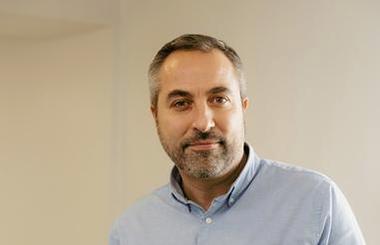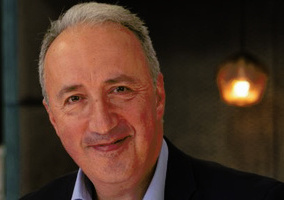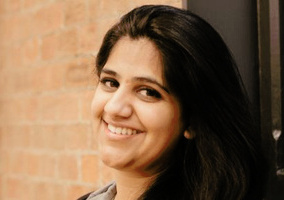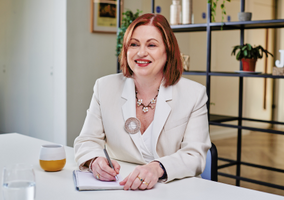Asif Afridi has just stepped into his first chief executive role, leading the more than a century-old grantmaker, the Barrow Cadbury Trust.
Still in “assessment stage” at his new employer, Afridi draws from more than 20 years’ experience at Birmingham-based equality charity brap, several board positions and involvement in a high-profile review of the sector.
“I’m really grateful to be in this position,” he says. “Of course, it’s scary. It’s my first CEO role, so inevitably there’s going to be a really steep learning curve for me around lots of things. My main goal is to be myself as much as I can and then hope that others will follow.”
Early interest in social justice
Afridi grew up in Stechford, east Birmingham, which he says had “quite heavy far right activity” including racism towards him and his friends.
“One thing I did know quite early was that racism really used to annoy me. So, I used to get really activated around issues of social justice.
“I think I always knew I was going to do something like that. If there was a fight kicking off in the playground, I’d generally be the one in the middle of it, trying to keep people away from each other. So I think I’ve always had that interest in issues of social justice, particularly racism.”
Afridi’s father was a postman with a keen interest in politics, which gave him “the spark” to eventually study political science and human rights at university.
His first job in the charity sector was in 2002 as a research officer at brap – then named the Birmingham Race Action Partnership.
“I was basically going out to drug treatment services in Birmingham, speaking to people, trying to understand how they were treated, what they thought could be improved. That kind of thing was a bit of a baptism of fire for a kid who’d only done research at uni but I really liked it.”
A few years later, Afridi was promoted to deputy chief executive of brap, a position he held until February this year.
Leadership styles
In March, Afridi moved from brap to lead the Barrow Cadbury Trust, one of its funders. He applied after being told last year that Sara Llewellin was stepping down as CEO after 15 years in the role.
“I never thought I’d get the job, if I’m honest. I just thought the competition would be way too stiff. But also, I was really hopeful and I thought it was worth a go. So, I was really pleased when I got it, but also quite surprised.”
He says Llewellin is a tough act to follow as someone who has a “formidable” reputation in the sector but she has left a “solid foundation” for him at the charity.
For more than two decades at brap, Afridi worked with its CEO Joy Warmington, from whom he has “learned a lot about leadership”. He has also been a trustee of both the Lankelly Chase Foundation and the Baring Foundation since 2020, which has given him a different perspective on being a CEO.
“One thing I've learned from those board positions is how to ask for help from trustees as a CEO. Barrow Cadbury’s trustees have just been great. A number of them are really long-standing as well, so they have seen the journey, if you like, from when they started funding organisations.”
Afridi has joined Barrow Cadbury Trust halfway through its strategic review cycle, which he says will enable him to understand “what type of impact our work is having, the partners’ work is having, and what that's telling us about how to tackle root causes of structural inequality” over the coming months.
In contrast to the Lankelly Chase Foundation, which is in the process of spending down its endowment, the Barrow Cadbury Trust decided in 2019 to reduce its annual spending in order to increase its longevity.
However, this plan was paused soon after due to increased need resulting from the Covid-19 pandemic and cost-of-living crisis. Afridi says the trust has no immediate plans to reduce the spending from its endowment. Its group investments were valued at £88.8m in March 2024, with it paying out £5.93m in the preceding 12 months.
Privilege and power
For two years, Afridi was a panel member of Civil Society Futures, an independent inquiry into the sector led by Julia Unwin which published its final report in 2018.
The report called on charities and other voluntary organisations to make fundamental changes to how they operate to improve their accountability to beneficiaries.
Afridi remembers there being “quite a bit of pushback” to the report’s suggestion that British civil society needed to “turn the mirror on itself” when thinking about issues of power and inequality.
“There was a level of defensiveness around that, I would say. Have things shifted since then? I think yes, to some degree. I think it’s more common to have self-reflection around those things.”
However, Afridi says the sector has not “shifted well enough” on the report’s recommendation that civil society must transfer more power to people and communities so they feel adequately represented in the sector and society.
“I think we’re still in that position where a lot of people think of civil society as the people who can influence, being based in London, where the bigger charities are. There’s still a level of inequality, I would say, within civil society that we haven’t yet managed to address.”
He says some people with less access to resources still feel a sense of powerlessness not felt in other areas of civil society.
Meanwhile, the Barrow Cadbury Trust has made efforts to come to terms with its complex history in recent years.
Founded in 1920 by the grandson of renowned chocolatier and philanthropist John Cadbury, the founder of the family-run Cadbury chocolate business in Birmingham, it has been driven by a social justice agenda since then derived from its Quaker roots.
In 2020, the trust’s chair Erica Cadbury published a blog about the roots of its endowment, which included the chocolate company’s profits from labour on cocoa plantations in São Tomé and Príncipe. A year later, she wrote an apology after discovering that Angolan people had been enslaved on the plantations at the end of the 19th century, from which the company had profited.
Afridi says: “I think there's always a balance to be struck. But I think one thing that accountability requires is openness and transparency about what's happened.”
Last year, the Barrow Cadbury Trust surveyed more than 400 of its partner organisations working in social justice and found that many were reviewing their use of social media, with a number planning to leave X.
The trust has not left Elon Musk’s platform itself but its output has declined and Afridi says it is likely to exit “in the coming months”.
However, the trust’s Fair by Design advocacy programme is likely to stay on the platform, he says, because there is not an alternative to engage with its key audience of parliamentarians.
Covenant optimism
Afridi is optimistic about the Labour government’s pledge to reset the state’s relationship with the sector through the upcoming Civil Society Covenant.
He is particularly hopeful about its focus on principles, which are currently drafted as recognition, partnership, participation and transparency.
Referring to the Compact, a similar agreement last renewed under the coalition government in 2010, Afridi says there was not a lot of investment, “certainly at a local level”.
“That’s something I think we’ll really need to take heed of with the covenant. It’s one thing having a set of written principles. It’s another entirely, embodying that, investing in the practice that’s needed.
“Accountability as well is another area that hasn’t always worked well with the compact. You know, it’s not always clear who is holding people to account.”
Afridi says he hopes the covenant recognises that the voluntary sector is “more than just a contractor” to the state and is important in its own right as “an indicator of the democratic health of our country”.
“I think there's a risk that we don't factor that in,” he says.
Related articles











